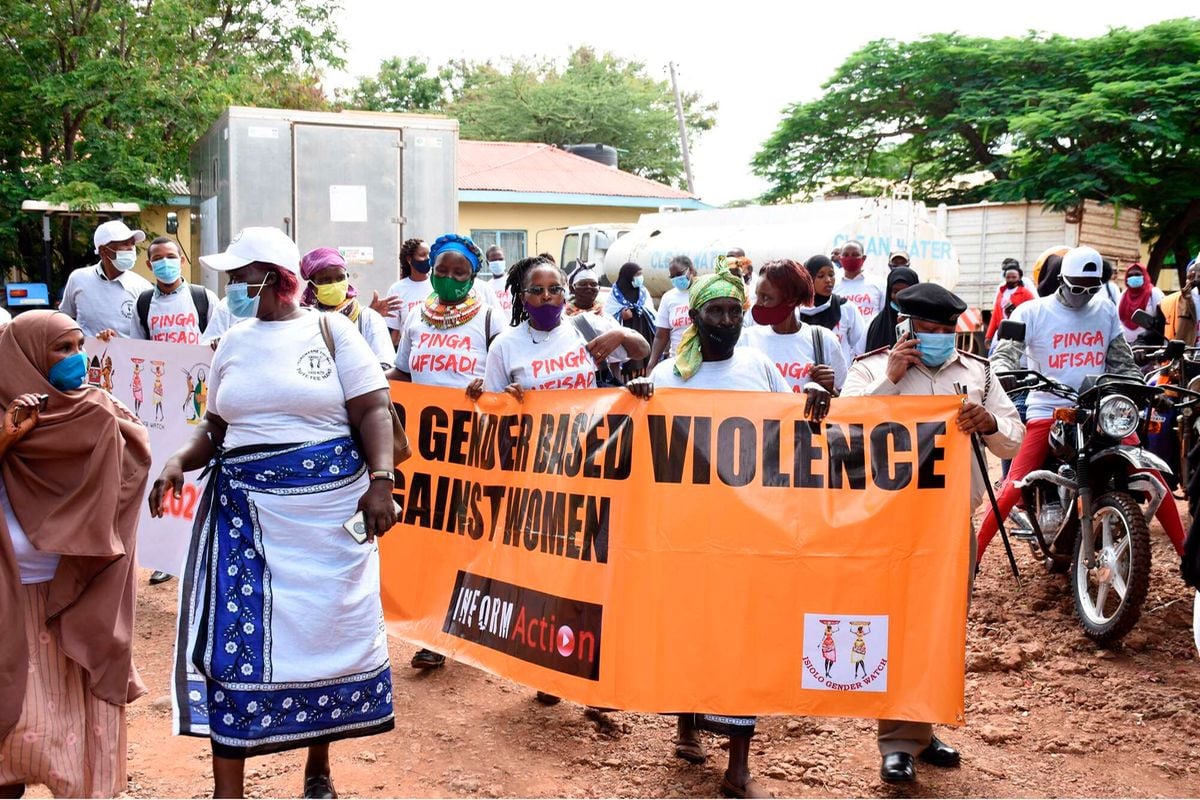A regional forum has recommended the establishment of a fund to help fight gender-based violence (GBV).
The Women’s Movement to End Violence against Women and Girls in West and Central Africa made the proposal during its first meeting in Abidjan, Côte d’Ivoire.
Participants adopted the Abidjan Declaration of the West and Central African Women’s Movement against GBV. The forum also released a list of coordinated actions between civil society, institutional and non-institutional state actors for the elimination of violence against women and girls in the regions.
The action plans include institutionalising the collection and analysis of GBV data in all countries and at the sub-regional and regional levels, to support advocacy for sustainable behavior change. The involvement of young people, especially girls, through social media, innovative communication tools, including inter-generational approaches, was also one of the recommendations of the forum.
Participants also agreed to implement a multi-actor framework, which includes the media, community leaders, associations, groups and inter-ministerial monitoring and evaluation of GBV initiatives. They also agreed to capitalise on and share best practice in the response to GBV, including knowledge management and communication for behaviour change.
Increased violence
The forum, whose aim was to recognise, celebrate and strengthen civil society, took place in the backdrop of increasing violence against women and girls, exacerbated by the HIV/Aids, political and humanitarian crises and climate change.
Mr Diarasouba Moussa, director at the Ministry of Women, Family and Children in Côte d’Ivoire, said: “This forum, which is a framework for strategic exchanges between governments, civil society and the media, will allow for the production of relevant recommendations in the framework of prevention and the financing of national mechanisms to fight against GBV.”
The Director of Gender at the Economic Community of West African States (Ecowas), Mrs Sandra Oulate Fattoh, regretted that there is too little information on women’s movements and activists around GBV, hence the relevance of the forum to document and collect data on the same.
“There is a worldwide increase in cases of GBV, especially in Africa. The Covid crisis has also caused devastating effects, such as the feminisation of poverty. We must all work together so that women and men in our region can live in an environment free of violence,” she said.
Mrs Kapinga-Yvette Ngandu, Gender Promotion, Human and Social Development commissioner at the Economic Community of Central African States (ECCAS), said conflicts in the region have exacerbated GBV, with women and girls being the major casualties.
“Many humanitarian dramas are shaking Central and West Africa. We see violence in the context of armed conflicts, with deplorable cases of sexual slavery, abduction, early marriage of girls and harmful practices. This forum calls on member states to ratify all the constitutions that protect women, and to propose even more concrete measures. Violence against women is unacceptable in all spheres and we need to work with governments for sustainable solutions,” she said.
Strengthening women’s movements
The Forum mapped the critical work being done by women’s movements and civil society to end violence against women and girls. It also sought to create spaces for exchange, sharing and networking to develop synergies and recognise, celebrate, and strengthen women’s movements.
UN Women West and Central Africa Regional director Florence Raes emphasised the need for civil society, institutions and governments to talk to each other and come up with a stronger and more powerful activism that identifies challenges and opportunities and builds a common advocacy agenda.
Women and girls from the region experience some of the highest rates of recorded GBV in the world. According to Relief Web, about 76 per cent of women and girls in Niger are married before the age of 18, with Burkina Faso and Mali being in the top six countries in terms of prevalence of child, early and forced marriage.
In Burkina Faso, female genital mutilation (FGM) and child marriage have increased with rising physical and food insecurity. Trafficking in persons, violence at the hands of armed actors, and traumatisation due to violence are also among concerns named by women, adolescent girls, and organisations.
The meeting was attended by the minister of Justice of Gabon, the Ministers of Women of the Central African Republic, Sao Tome and representatives of ECCAS, Ecowas and the diplomatic corps, international organisations of the United Nations System based in Côte d’Ivoire, and civil society organisations.
Representatives from the World Bank, United Nations Office for West Africa and the Sahel and United Nations Regional Office for Central Africa also participated and presented their results in the fight against GBV.
Women’s civil society organisations from Benin, Burundi, Cameroon, Chad, Congo, Côte d’Ivoire, the Democratic Republic of Congo, Liberia, Mali, Niger, Nigeria, Senegal and Togo learnt about prevention, activism and winning strategies.
The meeting allowed for a diagnosis of the current GBV situation, the actions taken by governments and civil society, the challenges posed by inadequate funding and the shrinking space for civil society and women’s rights.




